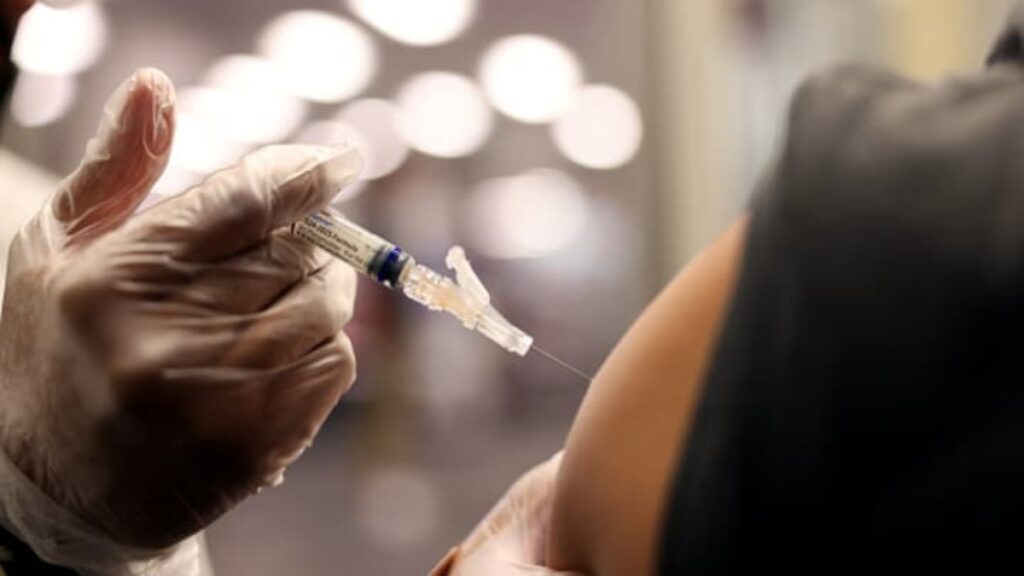COVID Vaccines: A Worldwide Response to the Pandemic

Introduction
COVID vaccines have become very important in fighting the pandemic worldwide. Researchers, policy-makers, and community-safety officials have made vaccines the main focus since the COVID-19 outbreak. We will examine here, in detail, what COVID vaccines are, how they were developed, how they work, and their global distribution. We will discuss mRNA technology, hesitation toward vaccines, and the results of clinical trials to show how COVID vaccines are impacting the future of health around the globe. Many people can be protected against COVID-19 today due to healthcare workers and scientists’ ongoing efforts. Besides being important for controlling the COVID outbreak, the vaccines make the world’s people better able to address future pandemics.
COVID Vaccines Are Helping To Protect Public Health Worldwide
COVID vaccines are key to stopping the virus from being passed from person to person. Vaccines protect people and help guard them against severe illnesses and death. Ensuring most of the population is protected, so herd immunity is reached, is also very important. Still, reaching this goal depends on good vaccine distribution, overcoming reluctance to be vaccinated, and giving fair access to vaccines for all nations, large or small.
What Does the Data Show About the Effectiveness of COVID Vaccines?
Throughout the pandemic, talk about how effective COVID vaccines are has dominated many conversations. Pfizer, Moderna, and AstraZeneca vaccines have all proven in early research to be highly effective against developing symptoms of COVID-19 infection. Apart from stopping serious illness, these vaccines lower the numbers of hospitalizations and deaths, greatly affecting healthcare systems everywhere. Studying how the vaccines protect people as new COVID-19 variants appear is important for public health.
A New Approach to Vaccines: mRNA Technology
Advances in vaccine development have come from new mRNA technology. While traditional vaccines teach the body about a virus or its proteins, mRNA vaccines, such as Pfizer and Moderna, give genes that direct the body’s cells to make a protein, which responds by creating antibodies. Thanks to COVID vaccines, this new system, vaccines can be made more quickly, and the process can adapt to new changes in the virus. Because mRNA technology helped against COVID-19, many experts think new vaccines against Zika, cancer, and HIV are possible.
Distributing the Vaccine: What are the Problems and How to Overcome Them
The way the COVID vaccines are distributed has been a key difficulty during this process. Vaccines have to be brought to far-away places, special storage is needed, and logistics must be solved as part of the process. Work on the global distribution of vaccines is carried out by organizations including the World Health Organization (WHO) and GAVI, to ensure that poor countries get vaccines. Although these problems existed, the fast and worldwide delivery of vaccines is an important success in fighting the pandemic.
What You Need to Know About Side Effects from COVID Vaccines
All types of vaccines can have side effects, but most of the side effects with COVID vaccines are mild and only last for a short time. Side effects that are reported often are pain where the vaccine was given, a fever, shivering, and tiredness. Most people don’t have these symptoms for long since they are linked to the body’s immune response. Though side effects are very uncommon, you must still carefully monitor those who have been vaccinated because it is important to treat any discovered problems promptly.
Working to Educate the Public
In certain groups, people’s reluctance to be vaccinated has made it difficult to get many people immunized. Fear in the public about COVID vaccines has partly arisen from misunderstandings and myths. There is now being done to inform people, and the number of reliable scientific findings is rising, which are both fighting against these myths. Making vaccine safety and effectiveness open to everyone remains crucial for health authorities and officials to promote higher vaccination numbers.
Rolling Our Vaccines out Around the World: A Collaborative Strategy
Around the world, countries have joined forces to get vaccines to people in every country. While some countries can immunize most of their people, low-income nations are struggling to get the vaccines they need. COVAX and programs like it are set up to help people in poorer regions by offering them access to vaccines. There are many problems with giving COVID-19 vaccines to everyone globally, but the overall aim is to reach and protect each person, wherever they happen to be.
The Pfizer, Moderna, and AstraZeneca vaccines are now available.
The three most important vaccines for fighting COVID-19 are all made by Pfizer, Moderna or AstraZeneca. Each vaccine is different in its way such as the amount of storage needed and the number of doses given. Pfizer and Moderna vaccines use mRNA, while AstraZeneca’s vaccine uses a viral vector. Studies have shown that each vaccine is highly effective at stopping COVID-19 infection and harmful results, but the effectiveness does change a little depending on a person’s age and the new strains of the virus.
How COVID Vaccines Are Approved: Following a Careful Process
Only the most intense reviews have been done on the approval process for COVID vaccines. Companies had to conduct medical studies before their vaccines were allowed to be used in emergencies. The U.S. FDA, EMA, and WHO helped review the results found in these trials. The quick development of vaccines was thanks to rare levels of cooperation between world governments, drug companies, and researchers.
How COVID-19 Vaccines Affect Public Health
Many countries’ mass COVID vaccine adoption has changed how global public health is managed. With an increasing number of vaccines, the virus spreads less, causing fewer people to be hospitalized and die. Thanks to this, countries can begin to open their economies and get back to day-to-day life. As well as safeguarding each person, vaccines have reduced the chance of infection in more vulnerable populations.
Ensuring that Every Time a vaccine is established, it is Fairly Provided
Distributing vaccines fairly is a top issue in the campaign against COVID-19. Vaccines have generally been distributed unevenly, so the most affluent nations have received them first. Because of this difference, some want fairness in administering vaccines by providing everyone, rich or poor, equal access to the vaccine. Though COVAX and help from affluent countries is making a difference, much more is still needed.
What Happens Next with COVID-19 Vaccines?
Because the pandemic keeps changing, our vaccination methods have to adapt as well. Analyzing new types of the virus is necessary to ensure our vaccines continue to do their job. As new variants start to appear, booster shots could become a standard part of protecting against infection. What was learned by making, distributing, and overseeing COVID vaccines will prove most useful in combating future diseases.

Conclusion
COVID vaccines have radically changed the approach to fighting the pandemic. Thanks to how quickly they were made with mRNA and how easily they are distributed, these vaccines have saved many lives and helped us fight COVID-19. Nonetheless, we still face problems such as convincing some people to take the vaccine, guaranteeing a fair distribution, and adjusting to the latest variants. Even so, the bright outcome of COVID vaccines suggests that using science and along with teamwork, can solve important global issues.



